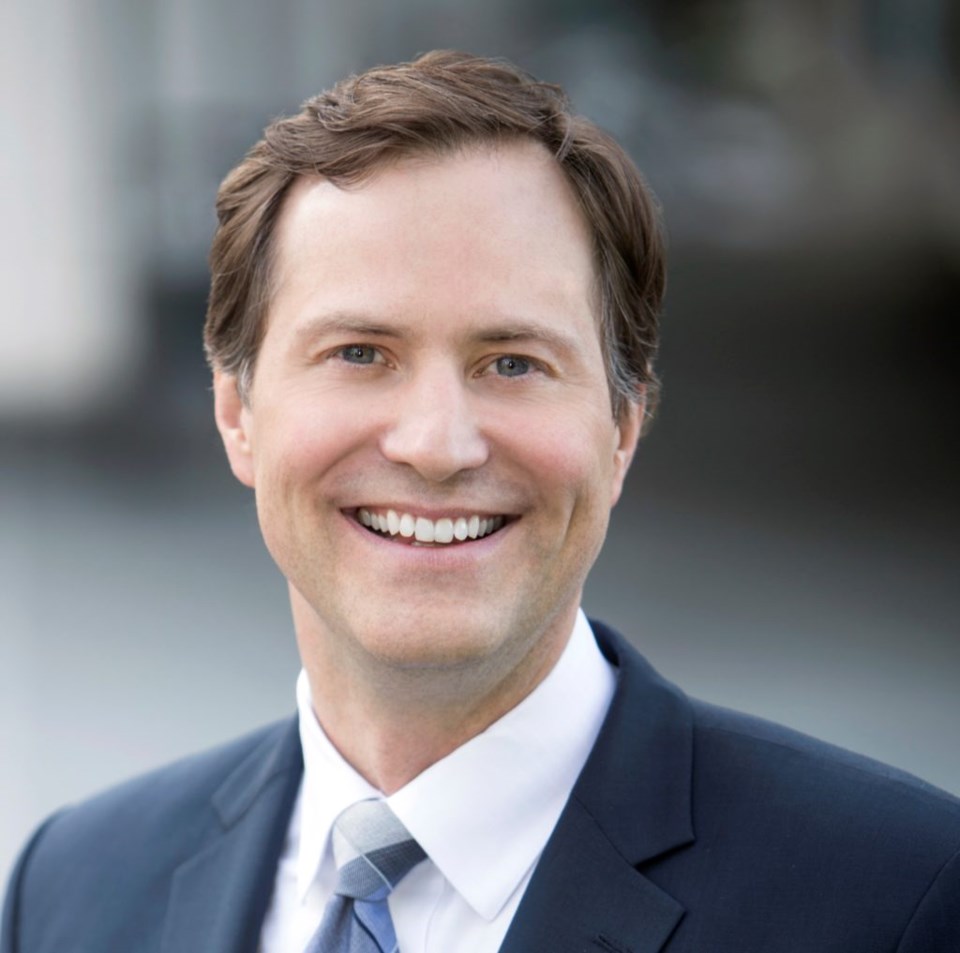It was 2017 when I first interviewed Bryan Cox. He had only been in his position as president and CEO of the Mining Association of BC for a few weeks, when he agreed to an interview with CHNL Radio in Kamloops.
Cox has been no stranger to tough gigs. Before, as head of Molson Coors Canada’s public affairs division, his initial assignment was a nearly impossible task: counter angry reaction to the company’s controversial decision to close a nearly century-old brewery in Edmonton.
Just three months after Cox initially joined MABC as vice president of corporate affairs, the Mount Polley mine disaster occurred when a tailings pond suddenly collapsed, resulting in a massive environmental crisis that gave the entire mining industry in B.C. a black eye.
When I last chatted with Cox, he was still working on behalf of BC’s mining sector. But this past February, he was convinced to take on a new undertaking, to oversee the development of British Columbia’s liquefied natural gas industry as president and CEO of the BC LNG Alliance – the public face and advocate for the development of the province’s LNG industry.

Bob Price: Bryan, nearly six months into your new position, how is everything progressing?
Cox: We’ve been talking about LNG for quite a few years, and now we have that all-important first investment decision. Remember that LNG Canada represents the largest private sector investment in Canadian history. With the project moving ahead, this allows career and job opportunities for thousands of British Columbians including Indigenous people.
It’s a very exciting time and there is opportunity for more to come.
Bob Price: So what exactly is BC LNG’s role?
Cox: Our role at the Alliance is to really engage with British Columbians and Canadians to explain the opportunity the LNG industry represents. So that means talking to governments, British Columbians, communities, and other groups throughout the province and country.
I also really think it’s important to highlight that our proposed projects in British Columbia will be the cleanest LNG facilities in the world.
There are just so many opportunities out there and that’s why it’s so important to make sure that public policy measures are in place to ensure we can unlock this opportunity to produce the cleanest LNG in the world and get it to markets desperately in need of it. Right now, 7 million people are dying every year in the world due to poor air quality. LNG can be part of the solution.
Bob Price: I know you are quite excited about the plans for the Fortis BC LNG facility at Tilbury Island in Delta…
Cox: This is an opportunity that hasn’t been talked a lot about with British Columbians as it really could be a step change for emissions and particulate matter when it comes to the shipping industry worldwide. If we can have the Port of Vancouver be a hub for LNG bunkering, that would be a true leadership role in playing a part.
Bob Price: What do you envision when it comes to job growth?
Cox: By building this industry the right way, in partnership with all our communities, with Indigenous nations and all levels of government, there are going to be amazing opportunities for all British Columbians who want to be involved.
Without question, the global demand for natural gas is there, and it will continue to increase. Natural gas is clearly part of the solution when it comes to greenhouse gas reduction, so growth is going to be great over the next several decades.
Importantly, it’s in tandem with renewables, so this not an either/or discussion – which I think it gets framed as sometimes. It’s going to be a “yes and discussion.”
So when you ask how many projects are there going to be, that is yet to be determined. But we do have an opportunity to play a really important role.
Bob Price: But with the growth of any industry, there will be challenges…
Cox: We really just need to make sure we can build this industry. As you said, we only have one final investment decision at this point. So a lot of what our group is doing is making sure we have public policy measures and opportunities in place for the growth of this industry. Like I said, the demand is there. It will be met by jurisdictions around the world if they aren’t met here.
Bob Price: Final question: what else do you want British Columbians to understand about LNG development?
Cox: Look at the LNG Canada project and the Coastal GasLink project, you see that all 20 of the elected Bands have signed benefit agreements. Look at the Kitimat LNG project and the Pacific Trail pipeline, all 16 of the Indigenous communities have signed agreements on that venture. Look at the proposed Woodfibre project, the Squamish Nation actually did a separate environmental assessment process and issued a certificate of their own, and are partners in this project.
So we’ve got really amazing stories when it comes to economic reconciliation happening as we develop this new industry.
As always, I welcome your comments and criticism on Twitter @kammornanchor and email [email protected].
Bob Price is a veteran B.C. broadcaster who anchored the morning news on CHNL radio in Kamloops for the past 30 years. Bob is also a past Webster Award winner whose previous stops included Vancouver and Calgary.


